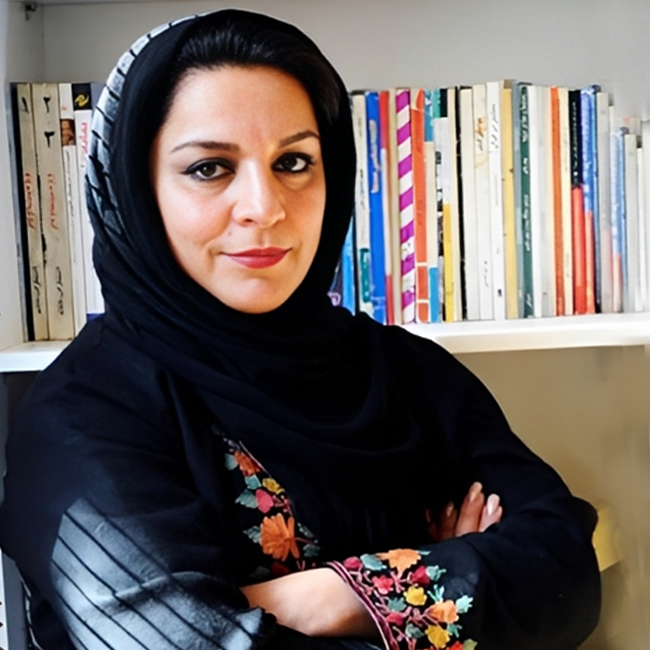

Tahmineh Milani (born on September 6, 1960) is a filmmaker, screenwriter, and producer. She is one of the most successful and influential female filmmakers in Iran, and her work has been praised for its ground-breaking portrayal of women and astute social commentary. As one of Iran’s most prominent female filmmakers, her work predominantly revolves around melodrama and comedy genres.
Milani began her career in the early 1980s. Over the next three decades, she wrote and directed several films that explored Iranian women’s lives from various perspectives. Milani is frequently described as a “feminist,” especially for her “Fereshteh Trilogy”: Daw zan, Nīmah–yi pinhān, and Vākunish’i Panjum, in which she usually depicts formidable female characters and the obvious impact of public events on women’s private lives. Some of her most notable films include, Bachah’hā’yi talāq (Children of Divorce, 1991), Nīmah-yi pinhān (The Hidden Half ,2001), Daw zan (Two Women,1999), Ātash’bas (Ceasefire, 2006) and Vākunish’i Panjum (The Fifth Reaction, 2003). Milani’s directing career has produced award-winning films such as Daw zan, Vākunish’i Panjum, and Zan–i zīyādī (The Unwanted Woman; 2005).
Her films are known for their emphasis on female characters and their realistic portrayal of Iran’s cultural and social issues, including women’s rights, social justice and the impact of the 1979 Revolution. Although, the Iranian government has frequently censored her work, she is a vocal advocate for Iranian women’s cause and continues to make films that defy the status quo and push boundaries. Milani, renowned for her social observations, often highlights the challenge of Iranians expressing their genuine identities as a crucial societal issue, noting the prevalence of dual lives among Iranians. Milani employs melodrama as an implicit mode of expression to effectively expose the social, political, and cultural roots of women’s oppression in Iran, a country where films are subject to strict censorship. Given the restrictions on media activities and freedom of expression in Iranian society, her melodramas find a warm reception among the middle class, guaranteeing the commercial success of her films. She attempts to shed light on the “hidden half” of women’s lives—unspoken aspects of women’s lives—while operating within the boundaries of state-regulated discourse.
